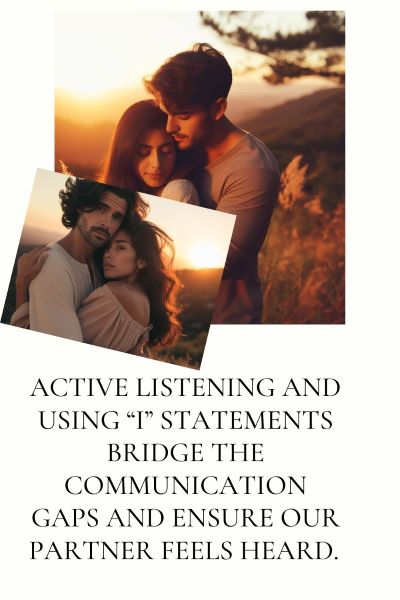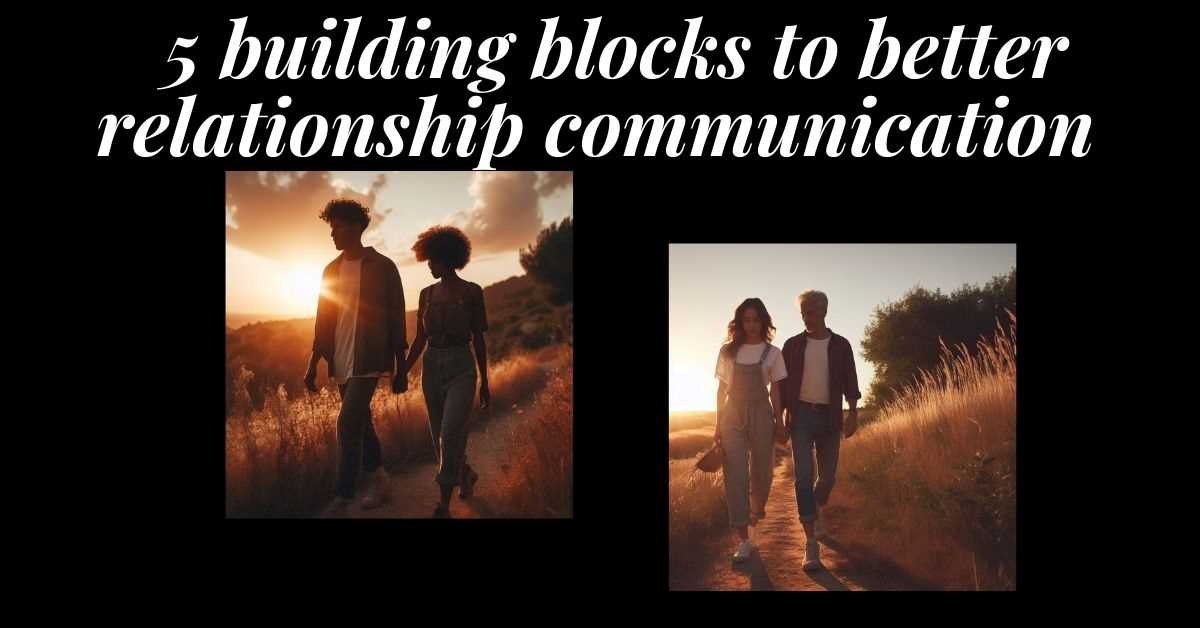You can better your communication and better your relationship starting today, here’s how.
Communication is one of the most important aspects of any relationship.
It is the way you express your love thoughts, feelings, needs, and desires to your partner, and the way you listen and understand their thoughts, feelings, needs, and desires.
It’s also the way you resolve conflicts, negotiate solutions, make your partner feel loved and make decisions together.
But in a relationship, it’s not always going to go smooth.
You’re going to face points where you don’t see eye to eye or just plain don’t agree, and that’s ok.
Because communication skills can be learned and improved.
By applying some simple but effective principles and techniques, you can communicate more effectively and constructively with your partner in a relationship.
Below I’ve put together tips for you to open the communication in your relationship today:
You have to be clear and concise
One of the keys to effective communication is to be clear and concise about what you want to say.
You have to avoid vague, ambiguous, or confusing statements that may leave room for interpretation or misunderstanding.
Use simple and direct words that convey your message accurately and precisely.
For example, instead of saying “I’m fine”, which could mean anything from “I’m happy” to “I’m angry”, say “I’m feeling sad because you forgot our anniversary”.
Instead of saying “You never listen to me”, which could sound accusatory and exaggerated, say “I feel like you’re not paying attention to what I’m saying”.
The point is that you must be open with how you are feeling while not trying to use those feelings to attack your partner.

Be honest and respectful even in you disagree
Another key to effective communication is to be honest and respectful about what you say.
Because you can’t build trust if you aren’t being honest in your relationship, and you can’t build respect if you’re not being respectful.
Avoid lying, hiding, or sugarcoating the truth that may damage your trust and credibility.
Also avoid insulting, blaming, or criticizing your partner that may hurt their feelings and self-esteem.
For example, instead of saying “I don’t like your friends”, which could sound rude and judgmental, but if you say “I feel uncomfortable around your friends because they drink too much” it means something totally different.
Instead of saying “You’re such a jerk”, which could sound disrespectful and hostile, say “I’m upset by the way you treated me because…”.
Be empathetic and compassionate
A third key to effective communication is to be empathetic and compassionate about what you hear.
And this is admittedly a tough one for us men.
Empathy is the ability to put yourself in your partner’s shoes and understand their perspective and emotions.
Compassion is the ability to show kindness and care for your partner’s well-being and is what really builds intimacy.
If you’re in a disagreement, instead of saying “That’s not a big deal”, which could sound dismissive and insensitive, say something like “I can see why that would bother you”.
Research has shown a correlation between our emotional communication and our relationship intimacy and satisfaction.
Instead of saying “You’re overreacting”, which could sound invalidating and belittling, say “I’m sorry you’re feeling this way”.
Use “I” statements
One of the techniques to communicate more effectively and constructively is to use “I” statements instead of ““you” statements.
It’s a quick and easy way of addressing a problem or issue one partner is seeing or facing in the relationship.
“I” statements are statements that focus on your own feelings, thoughts, needs, or preferences, rather than on your partner’s behavior or personality.
“You” statements are statements that focus on your partner’s behavior or personality, rather than on your own feelings, thoughts, needs, or preferences.
For example, instead of saying “You always make me late”, which could sound accusatory and blaming, say “I feel anxious when we’re running late”.
Instead of saying “You’re so selfish”, which could sound insulting and criticizing, say “I need some time for myself”.
Using “I” statements can help you communicate more effectively and constructively because they:
- Express your feelings and needs without attacking or judging your partner
- Take responsibility for your own emotions and actions without blaming or shaming your partner
- Invite your partner to listen and understand without feeling defensive or guilty
- Encourage your partner to respond with empathy and compassion without feeling resentful or angry

Use active listening
Another technique to communicate more effectively and constructively is to use active listening instead of passive listening.
Active listening is listening with the intention of understanding and responding to your partner’s message.
Passive listening is listening without paying attention to or showing interest in your partner’s message.
If you’re in a conversation with your partner, and are nodding or saying “uh-huh” while checking your phone or thinking about something else, what’s that tell them?
It tells them you are disinterested or distracted from what they want to discuss.
Instead, you can say “What do you mean by that?” or “How did that make you feel?” while maintaining eye contact and nodding appropriately.
The whole point is to recognize that the attention and words we use play a huge role in how our partner feels and the information we get from them.
Using active listening can help you communicate more effectively and constructively because it:
- Shows your partner that you care about what they have to say
- Helps you clarify any confusion or misunderstanding
- Helps you empathize with your partner’s perspective and emotions
- Helps you respond appropriately and constructively
You can have an open and honest relationship
Communication is one of the most important aspects of any relationship.
By applying some simple but effective principles and techniques, you can communicate more effectively and constructively with your partner in a relationship.
By enhancing your relationship communication, you can:
- Enhance your understanding and appreciation of each other
- Strengthen your trust and intimacy
- Resolve your conflicts and disagreements peacefully
- Improve your satisfaction and happiness
Sign up for our free newsletter and get the latest articles, research, and great deals to keep your relationship growing.
You can find our latest articles below:
-

How the Presidential Election is Affecting Relationships
The election is just ramping up and with events like the attempted assassination, this election is affecting relationships like never before.
-

What to Do When Your Partner is Gaslighting in the Relationship
Gaslighting can make your relationship fall apart and bring your mental health with it. Here’s how to stop it before it starts.
-

How Men Gaslight Women in a Relationship
Gaslighting is something that can turn a good relationship into a living nightmare. Here’s how to recognize when it happens and what to do.
-

How Women Gaslight Men in a Relationship
Men, you need to be able to recognize when you are being gaslit by your woman. Here’s how and what to do about it to keep you safe and legal.
-

What is Gaslighting in a Relationship?
Gaslighting can turn a good relationship into a living hell, here’s what it is, and how to deal with it before the problems start.
-

Why Women Need to Start Approaching Men
Ladies you need to start approaching men and it is absolutely the #1 fastest way to catch that high quality man of your dreams.
